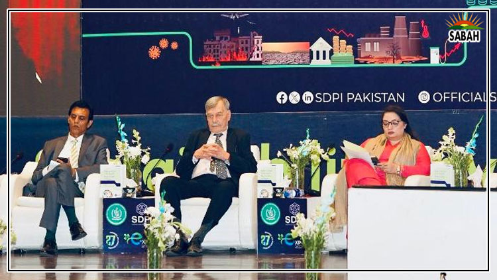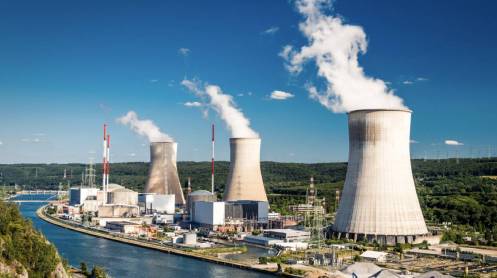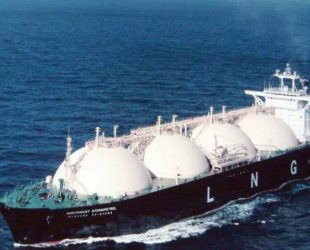ISLAMABAD: Minister for Petroleum and Water Resources Musadik Masood Malik on Thursday said Pakistan was heading towards the right direction as it had successfully controlled inflation, achieved substantial growth in agriculture sector and witnessed an increase in foreign reserves.
He was speaking at the concluding plenary of the four-day Sustainable Development Conference organised by the Sustainable Development Policy Institute (SDPI).
Mr Malik said the current government had three key priorities, and they were decreasing inflation, ensuring better public life and reducing poverty.
“The government aspires to take the GDP growth rate from 2.4 per cent to 3 per cent as its agriculture sector was growing at a rate of 6.3 per cent, ensuring better economic activity in the rural areas,” he said.
He said investment in social protection initiatives like the BISP and increase in PSDP funding would help ensure development and increase in livelihood opportunities for the younger generation.
The minister said decreasing policy rate, rising foreign reserves and growing foreign direct investment commitments were optimistic indicators that strengthened the country’s economic outlook.
Coordinator to the Prime Minister on Climate Change Romina Khurshid Alam said collaboration between the SDPI and climate change ministry had forged new synergies, with the intention to drive well-informed policy discourse.
She said Pakistan was committed to bringing resilience at the community level against adverse impacts of climate change.
At the upcoming COP29, Pakistan will passionately be advocating for climate finance, technology transfer and capacity building of vulnerable communities, she said.
Ms Alam said that she would be sharing recommendations from this conference at COP29.
Meanwhile, experts, stakeholders and policymakers deliberated on a range of issues at the conference, giving recommendations to the relevant authorities for bringing improvements.
In a plenary titled ‘Annual State of Renewable Energy 2024’ energy experts debated on the status of renewable energy sector, saying that the mushrooming growth of self-generated electricity was a major threat to national grid.
CEO of Attock Refinery and Attock Gen Limited Adil Khattak pointed out that Pakistan was currently producing more energy than it needs, which was not only causing distribution inefficiencies but was also becoming a hurdle in transitioning towards renewable energy.
Engr. Ahad Nazir from the Sustainable Development Policy Institute (SDPI) shared the Annual State of Renewable Energy 2024 report, offering a snapshot of Pakistan’s current energy situation.
Company Secretary at United Energy Pakistan (UEP) Tanveer Afzal Mirza said despite political and economic challenges, the private sector had demonstrated a willingness to invest, particularly in the wind energy sector, which had attracted nearly $3 billion in investments.
Tauseef H. Farooqi, former chairman of the National Electric Power Regulatory Authority (NEPRA) criticised the current energy system, stating that it is “neither affordable, nor reliable, and certainly not sustainable”.
Mr Farooqi explained that while private sector involvement was essential, the government must create profitable, long-term options for investors to thrive.
Responding to this, Daniyal Siddiqui from DSC Energy Ltd. said that fast-tracking CTBCM could stimulate investment and further the green finance goals of Pakistan.
Imran Rana, spokesperson for K-Electric, shared that the utility company aimed to source 30 per cent of its energy from renewables.
Managing Director of the Private Power and Infrastructure Board (PPIB) Shah Jahan Mirza said while Pakistan had made strides — generating 38 per cent of its energy from renewables in the last fiscal year – there was still much work to be done.
In the session, ‘Minamata Convention Compliance in Pakistan: Role of Dermatologists and Regulatory Authorities’, experts observed that an array of skin lightening products exported by Pakistan had a high concentration of mercury, posing a grave risk to human health and environment.
Director Lab/NEQS, PEPA, Dr Zaigham Abbas said seriousness of the issue could be gauged from the fact that out of 59 samples of skin whitening creams which were tested, only three were found to be complying with regulations and had mercury lower than 1PPM.
Khawaja Mohiuddin from PSQCA said the country lacked standard labs for testing contaminated cosmetics.
In the session, ‘Beyond Fake News: Finding Truth in a World of Misinformation’ senior journalist Mazhar Abbas outlined the severe impact of fake news on public trust in the media, especially in a society increasingly polarised by political and social divides.
Asad Baig from Media Lab said the monetisation model of social media platforms, which prioritised engagement and reach, inadvertently promoted fake news.
In the session titled ‘Transforming Food Systems for Climate-Resilient Food Security in Pakistan’, scientists, academics and industry experts spoke on the urgent need to strengthen the country’s agricultural infrastructure to withstand the increasing impacts of climate change.
Eric Kenefick, a representative from the World Food Programme (WFP) stressed the importance of building resilience in food systems to mitigate the effects of climate shocks such as heatwaves and floods, which have been devastating crop yields and livelihoods.
Alessia De Caterina from WFP Italy stressed the importance of raising awareness among policymakers about the long-term impacts of climate change on food security.
Florence Rolle from the FAO Pakistan highlighted the gender disparities that persist in Pakistan’s agricultural sector, noting that women have limited access to inputs, knowledge and financing.
Experts in a session titled ‘Collaborative Philanthropy in Pakistan with a Gender Lens’ called for a shift towards strategic philanthropy in Pakistan, emphasising the need to align funding with local needs, promote financial literacy for women in rural areas, and foster collaboration across sectors.
Similarly, key stakeholders, in a policy dialogue, spotlighted how Carbon Border Adjustment Mechanism could propel Pakistan’s industries onto the global stage, enhancing export competitiveness and setting a precedent for sustainable practices.
Speakers at the session, ‘Environmental conflict and social dialogue in Pakistan’ were of the view that by disturbing environment security, multiple crises, including hindering economic growth and food security, were created.
At a high-level policy dialogue titled ‘Beyond the Bottom Line: Co-Creating Philanthropic Impact, ’ speakers provided a roadmap for a more strategic, coordinated and impactful future for philanthropy in Pakistan.
Pakistan has taken right measures for economic growth: Minister Petroleum







